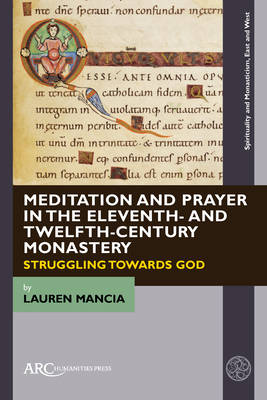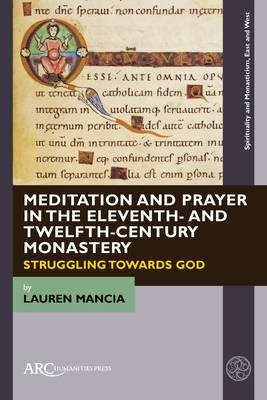
- Retrait gratuit dans votre magasin Club
- 7.000.000 titres dans notre catalogue
- Payer en toute sécurité
- Toujours un magasin près de chez vous
- Retrait gratuit dans votre magasin Club
- 7.000.0000 titres dans notre catalogue
- Payer en toute sécurité
- Toujours un magasin près de chez vous
Meditation and Prayer in the Eleventh- And Twelfth-Century Monastery
Struggling Towards God
Lauren ManciaDescription
This book explores the dimensions of medieval monastic meditation, prayer, and contemplation in the heyday of Benedictine and Cistercian spiritual writing, the eleventh and twelfth centuries. Mancia aims to answer the following questions: What did extra-liturgical prayer and meditation look like for medieval monks and nuns in western medieval Europe? When, where, and how was it practised? Was there a set way to engage with monastic meditation, or were there a variety of medieval monastic meditative experiences in the eleventh and twelfth centuries? What did monks and nuns perceive as the limitations of monastic prayer and meditation, and how did they understand their own imperfections and failures to perform "perfect" devotion? What extra-textual tools--art, manuscripts, diagrams, spaces--did monks and nuns rely upon to stimulate their practices of meditation? What does monastic meditation reveal about the emotional lives of Benedictine and Cistercian monks and nuns in the high Middle Ages? And, finally, what does the monastic struggle to pursue a prayerful Christian life have to teach the secular world of the twenty-first century?
Spécifications
Parties prenantes
- Auteur(s) :
- Editeur:
Contenu
- Nombre de pages :
- 123
- Langue:
- Anglais
- Collection :
Caractéristiques
- EAN:
- 9781641893121
- Date de parution :
- 31-05-23
- Format:
- Livre relié
- Format numérique:
- Genaaid
- Dimensions :
- 154 mm x 232 mm
- Poids :
- 498 g







